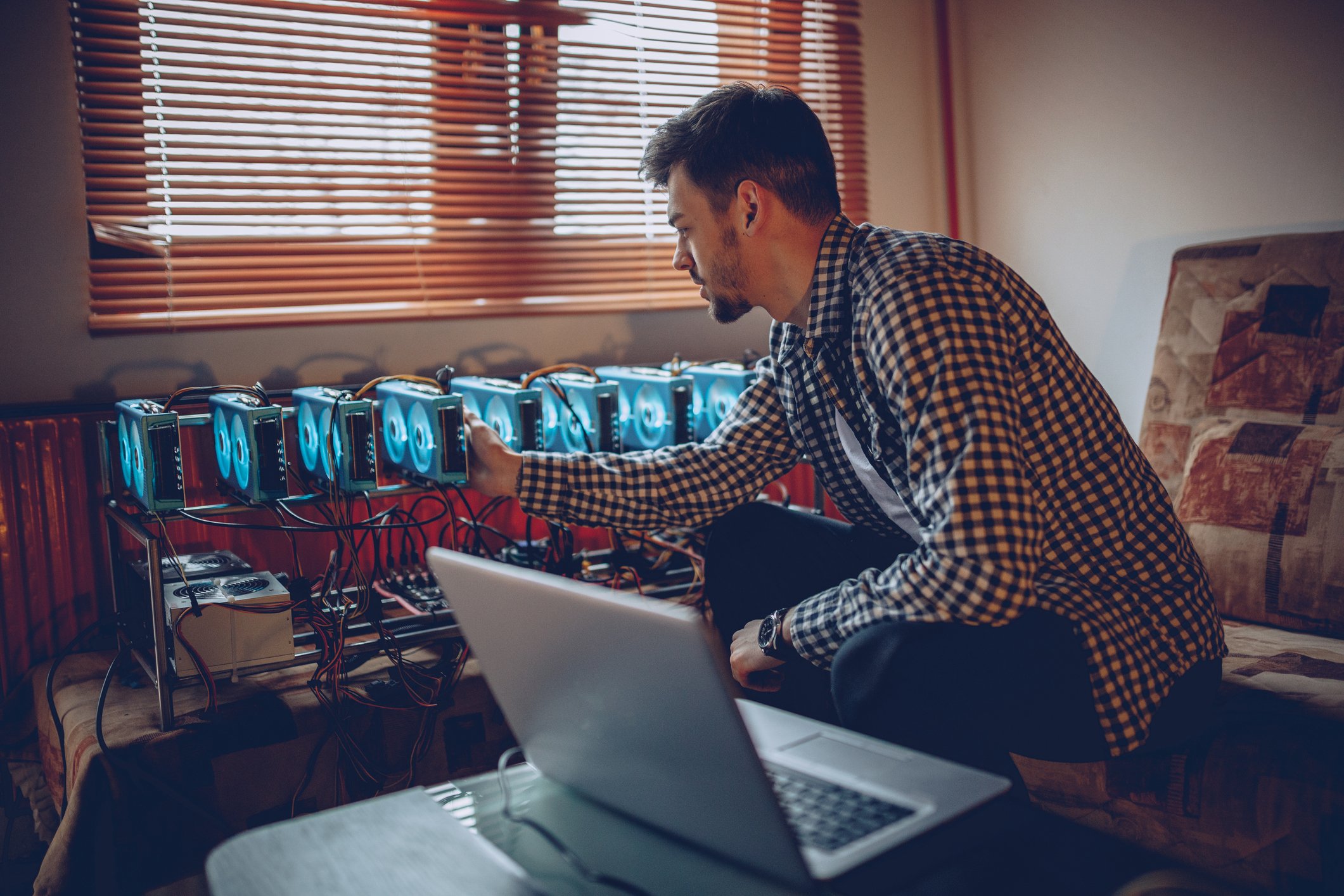Earlier this morning, the New York State Senate passed a bill that would institute a two-year moratorium on certain crypto-mining operations of tokens being created under the proof of work mining concept. This concept, which is used by the world's largest blockchain network Bitcoin (BTC 7.47%), has come under scrutiny for the amount of energy it consumes in the process and therefore its impact on the environment. The bill has now been sent to the desk of New York Gov. Kathy Hochul, who has the power to sign the bill into law or veto the bill.
The bill could have an overarching impact on the entire crypto-mining industry, but two stocks that come more immediately to mind are the U.S.-based bitcoin miners Riot Blockchain (RIOT 14.68%) based in Colorado, and CleanSpark (CLSK 18.44%) based in Nevada. Riot traded roughly 9.3% down as of 1:38 p.m. ET today, while CleanSpark traded nearly 5.5% down. Let's take a look at how this legislation could impact these two stocks.

Image source: Getty Images.
Leaving New York?
The driving factor behind the bill is to cut carbon emissions. Proof of work mining is the process of solving a cryptographic puzzle as quickly as possible to mint a new token. As the price of Bitcoin has risen over the years, so too has the desire to mine Bitcoin and reap the lucrative tokens, which has led to companies using more hardware and energy to solve the puzzles as quickly as possible and get the tokens.
If Hochul signs the bill into law, unless a Bitcoin miner uses 100% renewable energy they would not be able to extend their mining permits or obtain new ones. State Sen. Kevin Parker (D-Brooklyn), the sponsor of the bill, reportedly said that all but one Bitcoin-mining plant would be impacted by the bill and there is also an application pending that could be delayed for the time being, according to CoinDesk.
Both Riot and CleanSpark are Bitcoin miners with operations in New York, largely due to the fact that both have relationships with a company called Coinmint, which stores and runs a portion of their mining hardware. Coinmint runs digital currency data centers. Bitcoin miners initially flocked to New York to take advantage of cheap energy sources in the state.
On its LinkedIn page, Coinmint does say that its "data centers run with efficient cooling procedures and are powered by 100% renewable energy," so perhaps it will not be impacted by the law.
But in its annual 10-K filing under the risks section, Riot discusses a "lack of consistent climate legislation," and also notes that new climate regulation "could impose significant costs on us and our suppliers, including costs related to increased energy requirements, capital equipment, environmental monitoring and reporting, and other costs to comply with such regulations." Riot later in the document specifically says "legislation proposed in the state of New York, if passed, could restrict the ability of electricity suppliers to provide electricity to cryptocurrency mining operations in times of electricity shortage, or at all." Furthermore, Riot said that a change in regulation in New York may result in the company deciding to relocate its New York operations to its facility in Texas.

NASDAQ: RIOT
Key Data Points
CleanSpark is focused on the sustainable mining of Bitcoin and on its website says it's working toward the goal of 100% renewable energy.
Will Riot, CleanSpark be hurt by the legislation?
It's a little bit hard to tell right now because Coinmint says it is 100% renewable. However, Riot pointed out that legislation like this may make certain aspects of running their business harder. Still, if Gov. Hochul signs the bill into law it could lead to other states passing similar legislation or becoming more competitive crypto-mining states if they allow the practice. Investors may begin to factor the regulatory landscape more heavily into their analysis and investing decisions of this group of stocks.
Also, Bitcoin has no plans to move away from its proof-of-work mining concept any time soon. Ultimately, the legislation adds another problem for Bitcoin miners, which have no shortage of issues with the price of Bitcoin significantly down this year.







